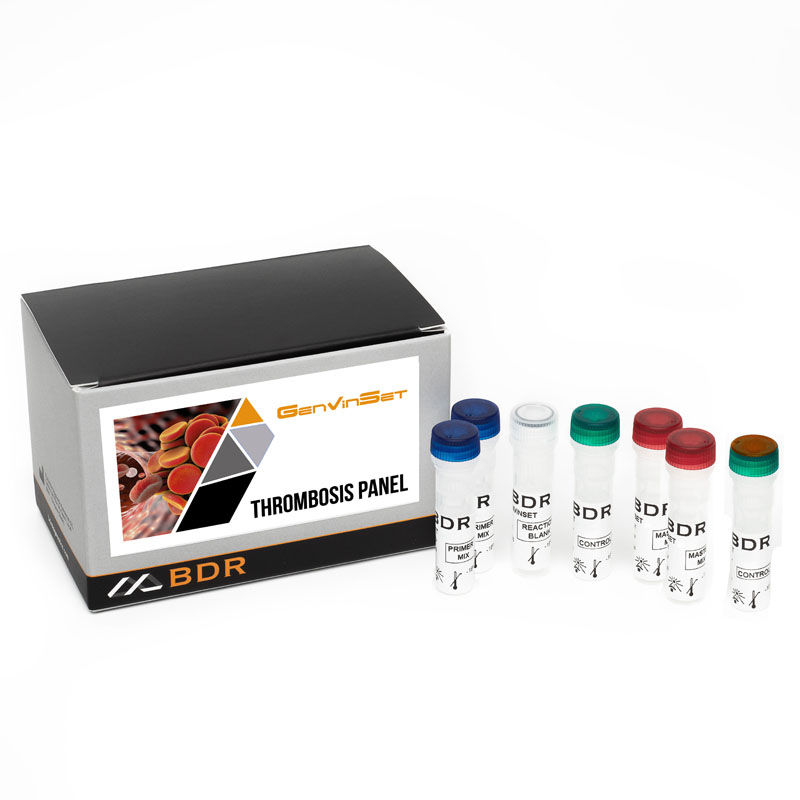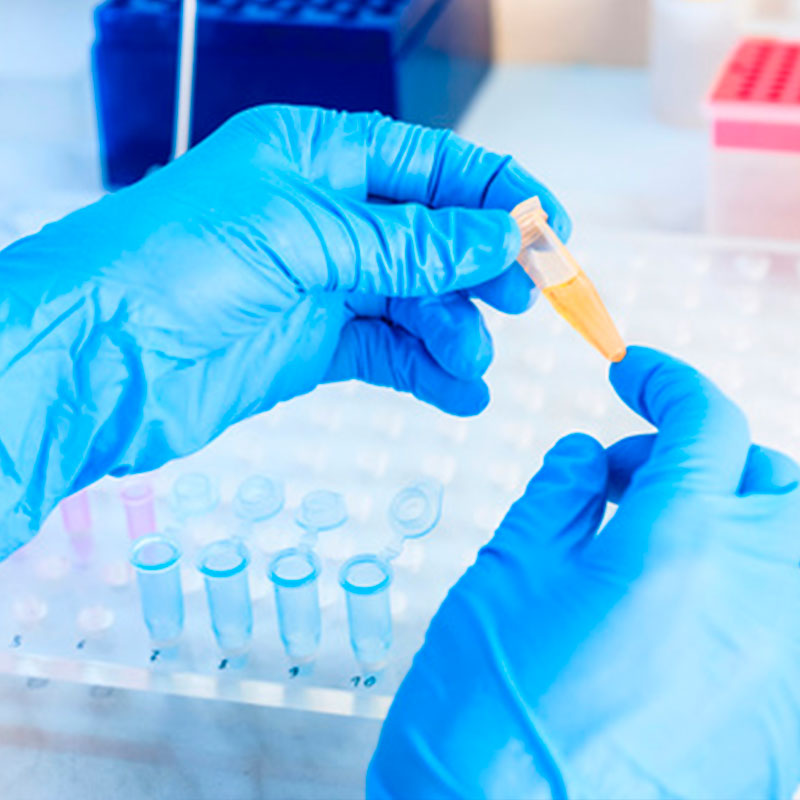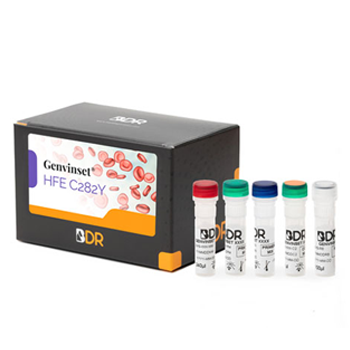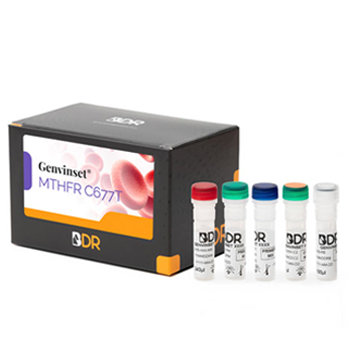Methylenetetrahydrofolate reductase (MTHFR) is a key enzyme in folate metabolism. Although MTHFR protein does not participate in the clotting cascade as other proteins such as FII and FV (and therefore belonging to the well-known group of coagulation factors), the involvement of MTHFR in the folate metabolic pathway may affect thrombophilia development, as well as increased cancer risk or Alzheimer’s disease appearance. MTHFR gen can present different polymorphisms. The most common and studied variant is the MTHFR C677T polymorphism.
The Factor V Leiden is a variant of the Factor V of human coagulation. It has an important role in the coagulation cascade. The mutation G1691A is the most common hereditary hypercoagulability disorder amongst Eurasians. Its prevalence varies between 1% and 13%, depending on the geographical location and ethnicity.
Prothrombin (Factor II) is a glycoprotein generated in liver. It is an essential component of the blood-clotting mechanism. The regulation of the prothrombin expression is crucial for the homeostasis maintenance. The G20210A mutation of Factor II presents a high prevalence (18%) in families with thrombosis and in 6.2% of patients with first thrombosis. The G20210A position within the prothrombin gene is explained to cause an increase in the level of prothrombin, which leads to an increased risk of thrombosis.
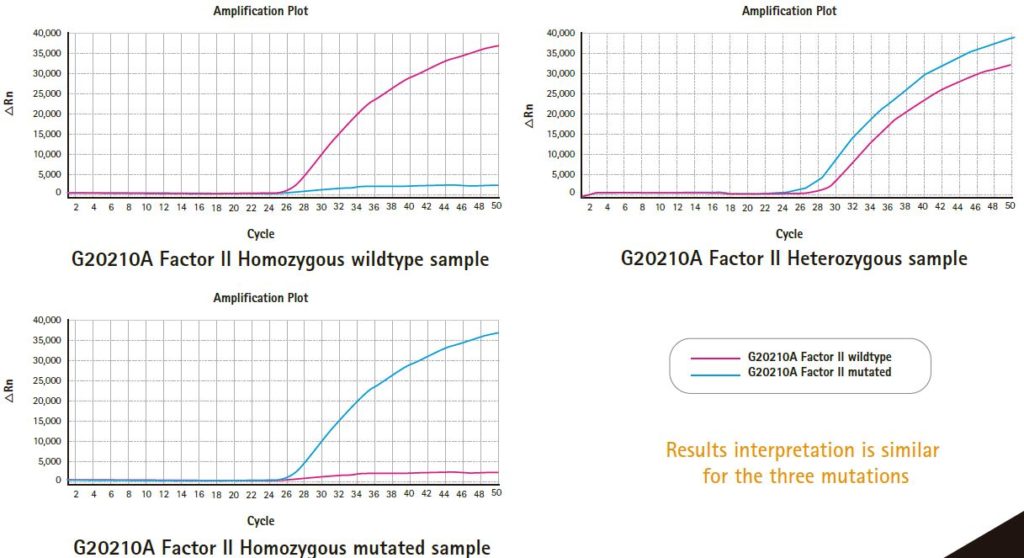
Genvinset Thrombosis Panel is based on Real Time PCR using TaqMan® probes. This technique provides high resolution, high sensitivity, specificity and reproducibility.


